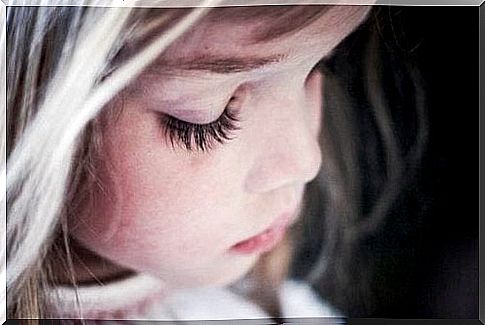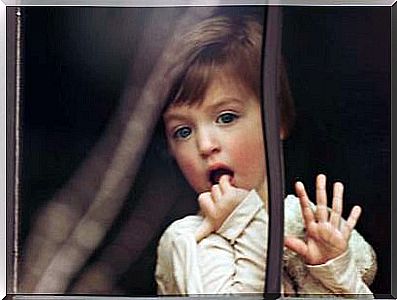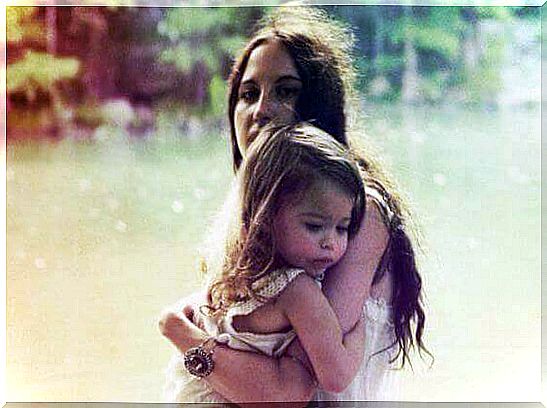Hypereducation: A Way To Raise Unhappy Children

We can define hypereducation as the excessive attention given to children. Perhaps to some it may seem like just a way to question the way we educate our little ones.
After all, why shouldn’t we give our full attention to the education of our children? What is the limit? All children need the love and constant attention of their parents. This is why it is sometimes difficult to understand what the limit is.
Well, in reality this limit is found precisely in that thin border beyond which the personal growth of our children is not allowed and we fall into emotional toxicity.
Because education is not control, it does not mean asphyxiating and clipping the wings of those children who tomorrow will have to be adults capable of making decisions and being responsible for their lives.
The term “hyper-education” also has other implications that we need to know.
Over-education or the burden of being overprotective
The most curious thing about this type of behavior and educational approach is that parents interfere a lot in every aspect of their children’s lives: school, sports, passions, nutrition, friendships …
They are “hyper-present”, they think they act like the best parents in the world and that this is the best way to educate their children. However, children’s emotional and personal balance is far from being a reflection of happiness.

Consequences of overeducation: disappointment
Parents have internalized what for them is the ideal of the perfect child and, as if that were not enough, in this sphere they include themselves as essential reference figures.
However, as time passes, they find that their children do not fit into this ideal and at that point disappointment appears.
When the child perceives this disappointment in the parents’ gaze, he begins to experience negative feelings caused by the feeling of failure and inferiority.
Consequences of overeducation: anxiety and stress
- One aspect that we must take into account about overeducation is that it goes hand in hand with educational hyperactivity. It is quite common for parents to enroll children in multiple extracurricular activities which, at times, do not even arouse interest in the children themselves.
- Little by little we will have stressed children, with a level of anxiety similar to that of an adult.
- Parents who resort to overeducation do not tolerate mistakes in their children. They strive to train competent children, immune to error or failure, and such a thing is absolutely impossible.
Consequences of overeducation: it is forbidden to make mistakes
- Every child has the right to make something wrong and to be able to learn from his mistakes in complete freedom.
- Highly educated children become their own judges. The goals set for them are so high that when they feel they are unable to reach the desired level, they blame themselves and give in to self-destruction.

Education with balanced attachment to foster responsibility
According to a study carried out by the University of Queen, Ontario (Canada), one of the most serious consequences of overeducation is that children between the ages of 7 and 12 barely know what it means to play outdoors or interact with friends. They are unhappy children.
We know that raising a child means, above all, protection, but this protection must be based on the following aspects.
Protect the child to make him feel safe, not “restrained”
- A healthy attachment to the child is what promotes the child’s recognition so that he or she has a good self-image.
- A child who feels protected by his parents has a stronger self-esteem which will consequently allow him to have initiative, not to be afraid, to mature and to take on his responsibilities.
Protect by giving advice, but allowing you to learn from your mistakes
We protect children so that they do not fall, so that they choose the correct path, but the aim must always be to promote the fact that they have a voice of their own and, above all, that they can make their mistakes to learn from them.

Protect so that they know that whatever path they choose you will be with them
The attachment and the strength of the bond is indispensable, especially during the first years of our children ‘s life. However, from the age of 7 or 8, children will mature sharply.
- This is the moment when they will demand rights, when they will get an idea of the concept of justice and morality. It is the passage before the chaotic adolescence where they will begin to make decisions that may surprise us.
- Let us always listen to them and advise them every day, let us teach them that to be free, one must be responsible; that to enjoy some rights, some duty must be fulfilled.
We need to foster learning based on experience, not on overeducation that holds back the voices of children and sets ideal goals that no one can achieve. It is worth considering.








